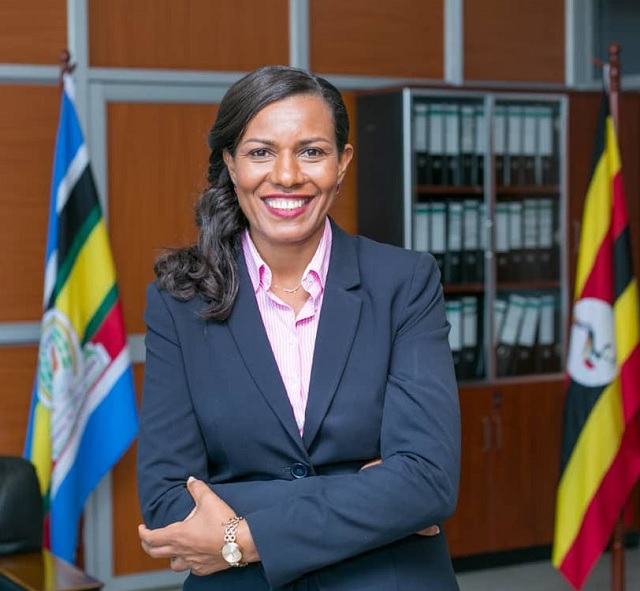
Kampala, Uganda | THE INDEPENDENT | The Uganda Tourism Board (UTB) is calling on all players in the tourism sector value chain to prioritize environmental protection, good business governance, and respectful co-existence with the host communities in the areas where they operate.
This emphasis on these three aspects is part of the board’s new strategy aimed at creating a viable and vibrant tourism sector, despite the threats posed to it when these factors are neglected. According to Lilly Ajarova, the CEO of UTB, the sector players, both in the government and private sector, must closely monitor these aspects because the industry’s future is premised on them.
The United Nations World Tourism Organization defines sustainable tourism as tourism that takes into full account its current and future economic, social, and environmental impact, addressing the needs of visitors, industry players, the environment, and host communities. The UTB aims to achieve this in the sector.
Ajarova emphasizes that the country needs to establish a proper balance between the three dimensions, including making optimal use of environmental resources, maintaining essential ecological processes, as well as conserving natural heritage and biodiversity to ensure the sector thrives longer.
For instance, gorilla trekking is one form of sustainable tourism in Uganda. It was the innovative solution that was created to conserve the forest while enabling Ugandans rise from poverty. The activity has restriction on the number of visitors to a gorilla group per day (8) to maintain the carrying capacity of the forest so that it remains in its natural state.
“These aspects are not new to the industry, but they are emerging issues that have to be tackled. It was intentional to bring them to the forum, take action, and actually change the behaviors and lifestyle of a whole country,” Ajarova explains.
She adds that the guidelines and management practices apply to all forms of tourism and all types of destinations, and they are not exclusive to the tourism sector but are now essential to every corporation in any industry.
Regarding the relationship between tourism and the environment, Ajarova notes that since Uganda’s tourism is mainly nature-based, climate change poses a threat to the sector, and the effects the sector has felt so far are heavier than the scars left by the COVID-19 lockdown.
“Tourism is a threat to the environment if not well managed, and based on what climate change effects have done to the sector, it should be a wake-up call that more should be done in tourism business operations to intentionally conserve and protect the environment, as we highly depend on nature for survival as a sector,” Ajarova said.
In the emphasis on the strategy, Flavia Kabahenda, the chairperson of the Parliamentary Committee on Gender Labor and Social Development, says that in the social responsibility perspective, the industry can bring on board and satisfy Ugandans from the various social divides, be it gender or ethnicity.
According to Kabahenda, every gender has a role to play in the sector, and the sector should be given a chance to serve this purpose, and its space has to be maximized, and gender equality is at the backbone of having a viable tourism sector which UTB is striving to achieve.
Kabahenda notes that although women comprise the biggest number of employees in the tourism sector, the big question is the quality of their employment. Many of them are in this industry by default due to the cultural orientation they are exposed to, and the sector players should not take that for granted.
“It is a pity that some companies use women as objects for selling their tourism. You must have a beautiful woman in your bar, in your hotel to bring in men. I don’t know why they think that it’s men who are clients. We don’t want to be used as objects, and feminizing tourism at the worst,” Kabahenda said.
Cuthbert Ncube, the president of the African Tourism Board, says the strategy has come at the right time when Africa needs to stand up and create mechanisms that speak and reflect its interests.
“We need to come together as Africans to work around and find what we can do around climate change. We also need to discuss how the local communities benefit from tourism. Remember, they are the custodians of what god gave us. Once we include them in the system, it will be easy because they are our first brand ambassadors” he said.
*****
URN
 The Independent Uganda: You get the Truth we Pay the Price
The Independent Uganda: You get the Truth we Pay the Price


